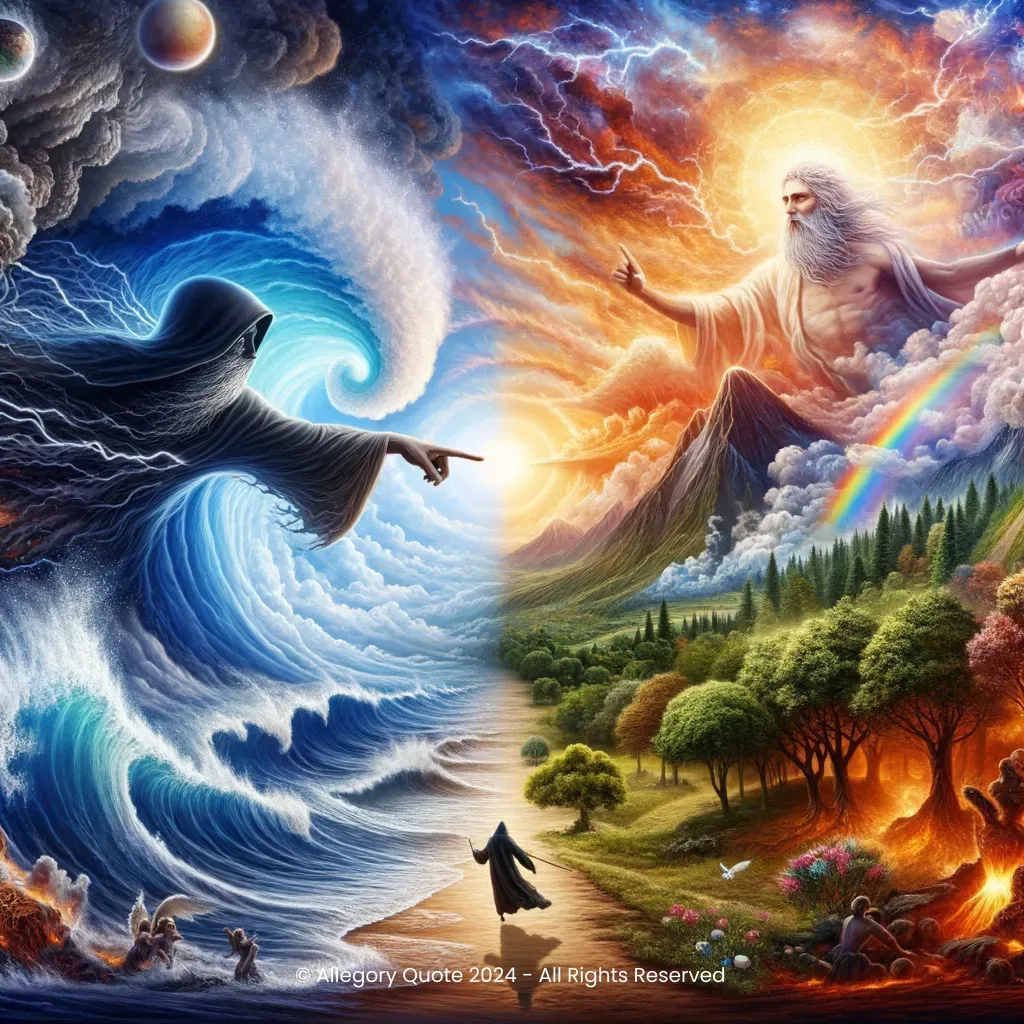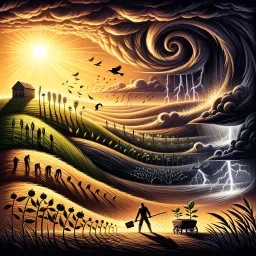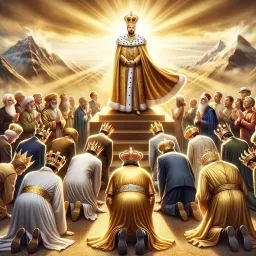Prophet of doom

0
0
0
0
- Meaning
- The term "Prophet of doom" refers to someone who constantly predicts negative events or future disasters. More broadly, it can be used to describe people who have a pessimistic view of life or the future. These types of predictions can create a sense of fear and uncertainty among people, negatively influencing their perception of reality and their behavior. Pope John XXIII used this expression to criticize those who only saw negative aspects in the changes and progress of society and the Church.
- Allegory
- In the allegorical image, the gloomy figure represents the "prophet of doom," those who foresee only calamities in the future. The pointed finger towards apocalyptic scenarios clearly shows their pessimism. Next to this, the radiant figure represents optimism, with an open and welcoming attitude towards the future. The lush trees and clear skies indicate possibilities and prosperity. The rainbow symbolizes hope and overcoming difficulties, a sign of optimism. The entire contrast between the two landscapes and figures emphasizes the balance between different approaches to life and its challenges.
- Applicability
- The phrase "Prophet of doom" can be used in everyday life as a warning against excessive pessimism. It can serve as a reminder to strive to maintain a balanced view of reality, considering not only potential risks and problems but also opportunities and positive aspects. Adopting a more optimistic and constructive attitude can positively influence not only one's own life but also the lives of those around us.
- Impact
- The impact of the phrase "Prophet of doom" has been significant in Catholic culture and beyond. It highlighted the importance of a positive attitude in the face of inevitable changes and challenges in life. The phrase is often cited to emphasize the need not to be discouraged by difficulties and to avoid excessive pessimism. It has been used in various contexts, from politics to cultural discussions, to contrast negative and positive connotations.
- Historical Context
- The phrase "Prophet of doom" gained popularity during the opening of the Second Vatican Council on October 11, 1962. This period was characterized by significant social, political, and cultural changes around the world, and the Catholic Church itself was seeking to modernize and respond to the new times. It was a time of hope and fears, and Pope John XXIII wanted to encourage optimism and confidence in the future.
- Criticisms
- The criticisms related to this phrase can come from those who believe that prudence and realism are necessary approaches and that labeling someone as a "prophet of doom" might discredit legitimate concerns. Some may argue that not all negative predictions are unfounded and that sometimes it is important to listen to those who raise alarms to prevent potential future problems.
- Variations
- There are variations of this phrase in different languages and cultures. Many cultures have similar expressions to describe people who spread negativity or pessimism. For example, in English, the term "Doomsayer" or "Prophet of Doom" is used. However, the interpretation can vary: in some contexts, such figures may be perceived as wise warnings rather than mere pessimists.
-

He who sows the wind shall reap the whirlwind.
-

No turning back.
-

Love conquers all things, except poverty and toothache.
-

All the kings of the earth will bow down before him, and all nations will serve him.
-

Love is a force that transforms and improves the Soul of the World.
-

Before me every knee will bow; by me every tongue will swear.
-

While there's life, there's hope.
-

The only limit to our realization of tomorrow will be our doubts of today.
-

The end justifies the means.
-

Beyond the sphere that widest orbit swings, passes the sigh that leaves my heart below.
No Comments